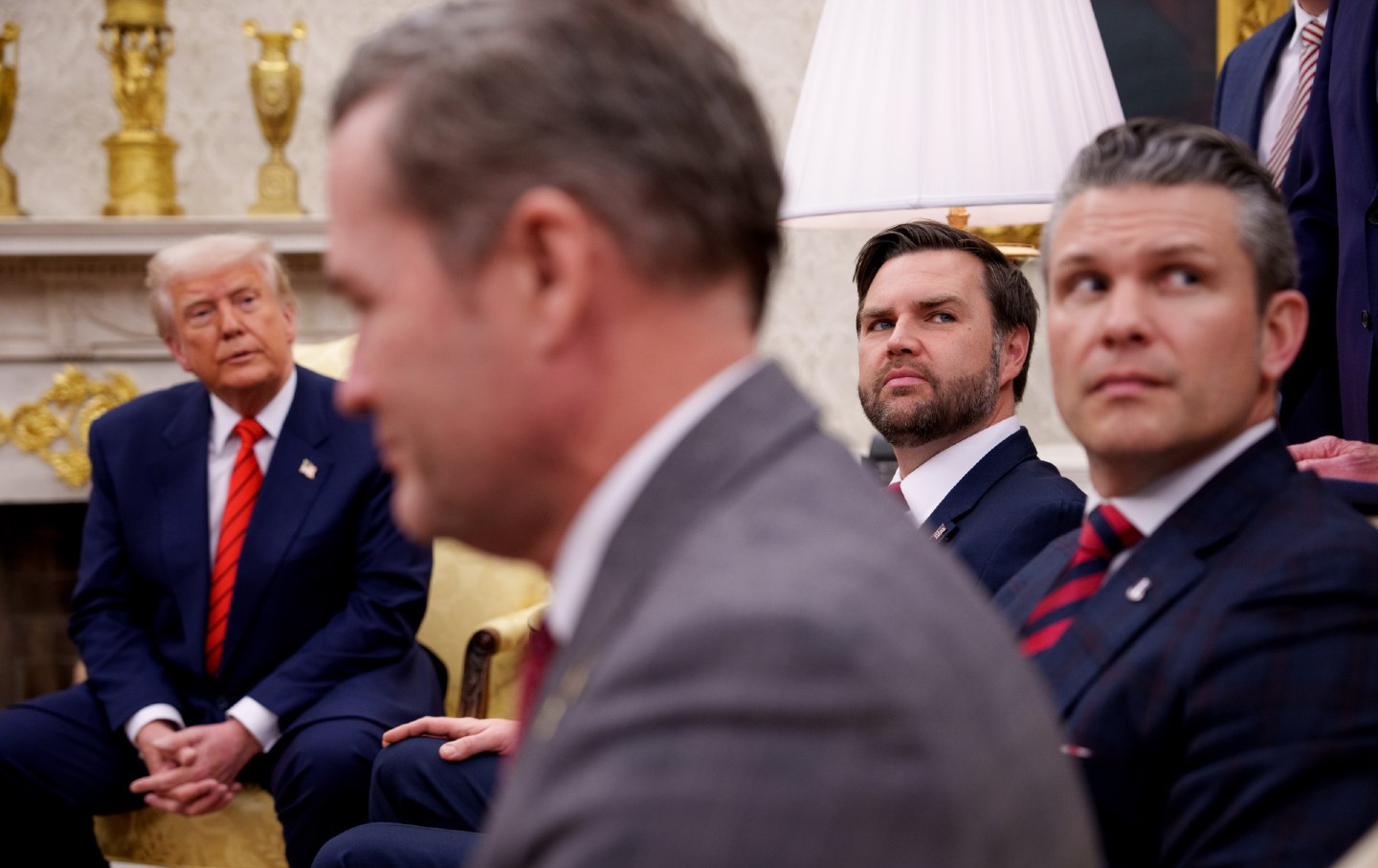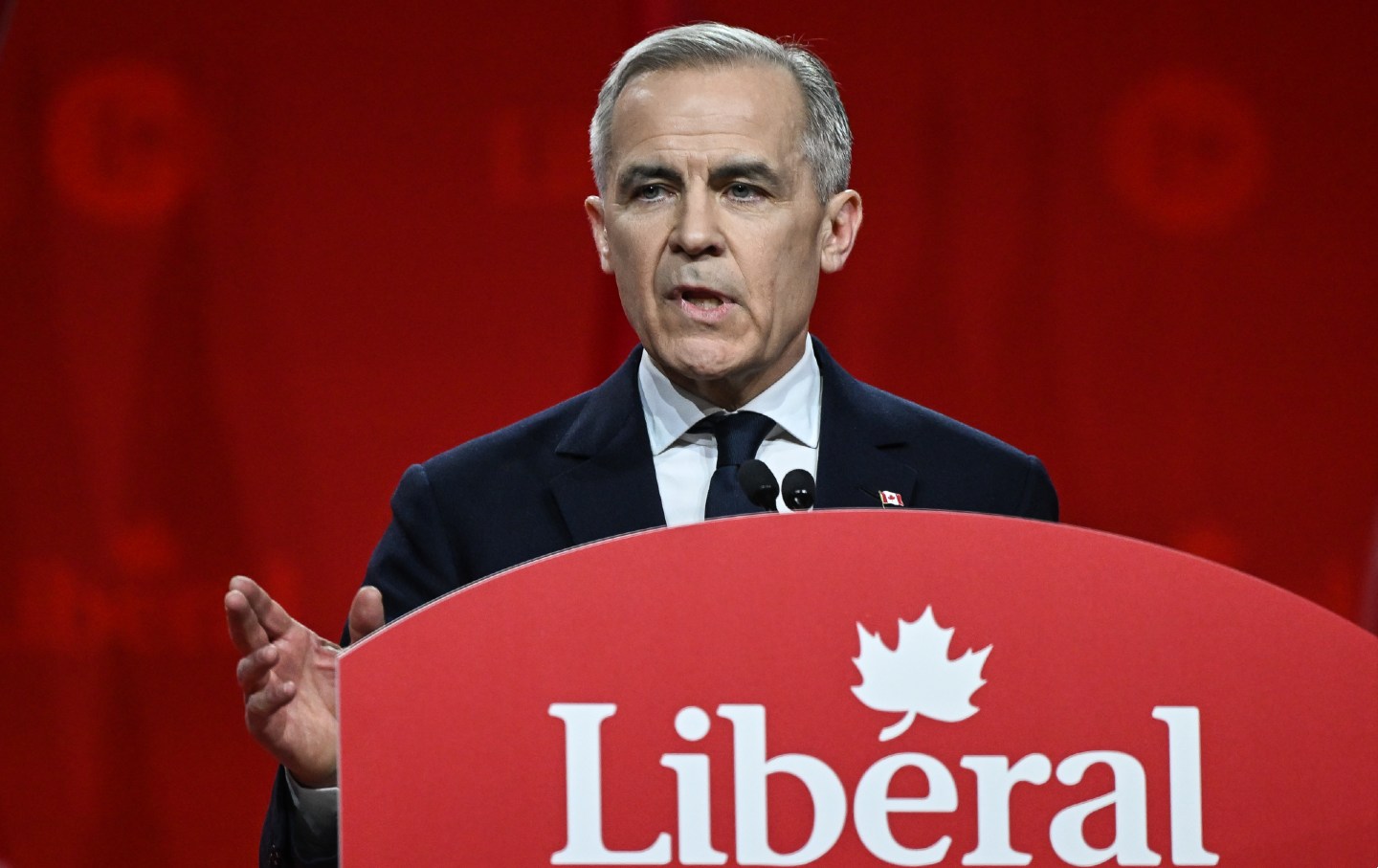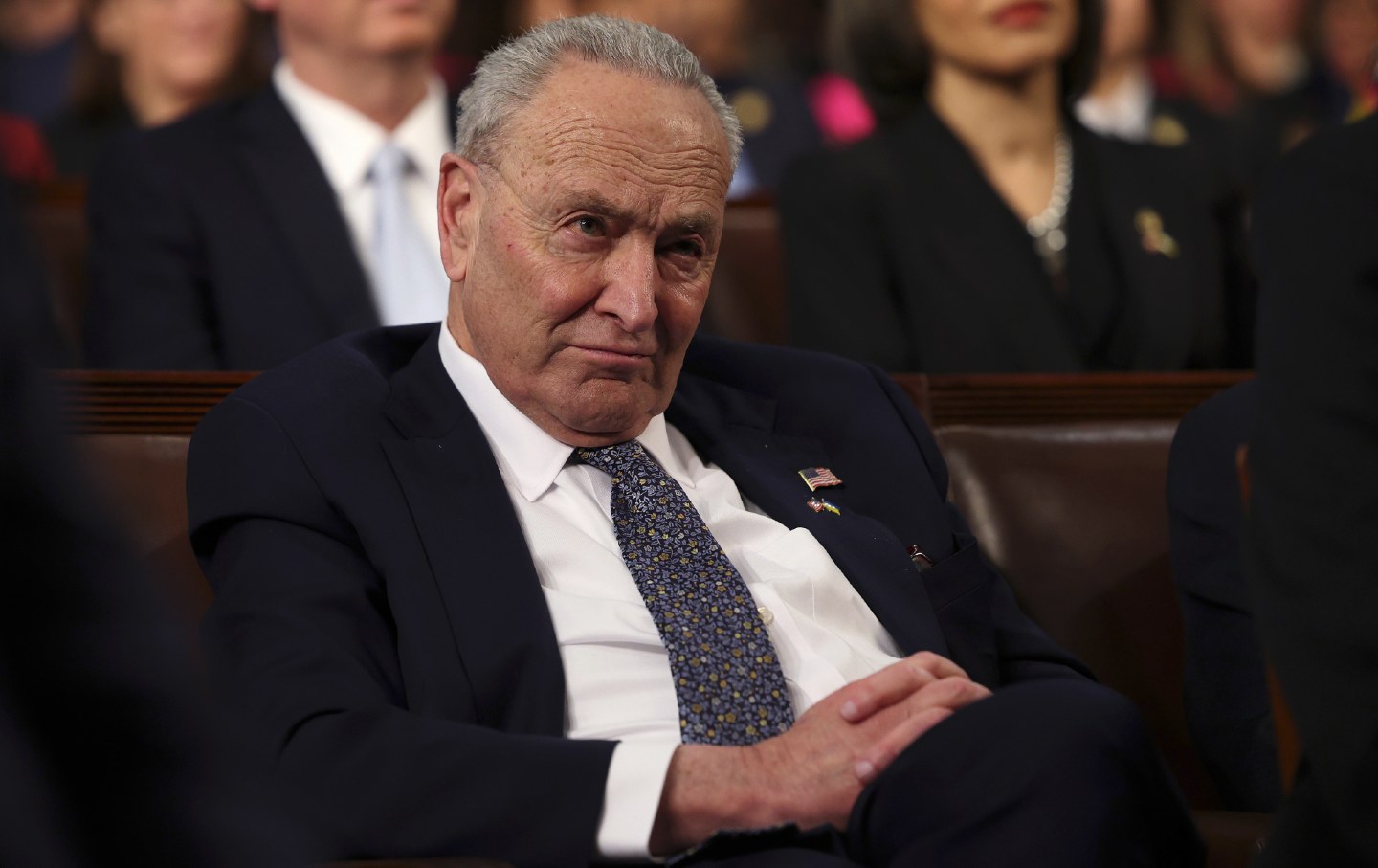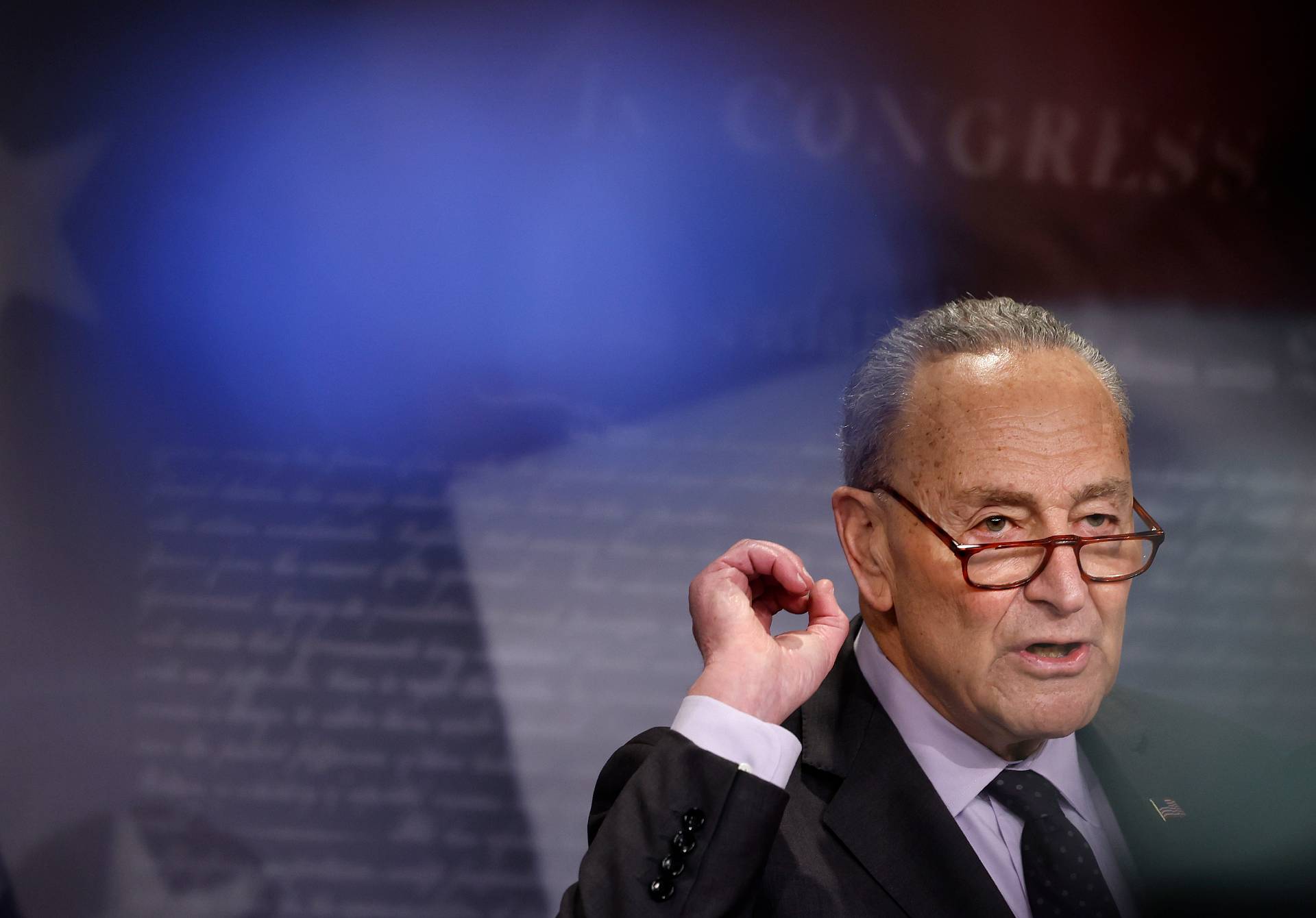The president’s tariff war is also a constitutional crisis.
Donald Trump’s incredible new tariffs amount to a declaration of war on the whole planet. When defending the president, Republicans are leaning towards variations in the saying “short-term pain, long-term benefits.” Republican Sen. Tim Sheehee It was spelled The discussion about CNN states, “There’s absolutely no short-term pain… If you’re going to remodel your home to improve it, then when the house is remodeled and there’s dry wall dust everywhere and there’s workers in your living room, it’s really annoying in the short term.”
The problem with Sheehee’s minority is that there are all reasons why Trump’s tariffs will bring about both short-term pain and even longer-term pain. In other words, far from remodeling a house, Trump is bombing the entire neighborhood. Short-term pain is easy to see: Stock Market It was dropped It lost 6%, $3.1 trillion worth. This is the sharpest decline since March 2000, when the global economy was surprised by the rapid spread of Covid. However, the stock market is just one measure of loss.
What’s even more troublesome is the outlook that Trump could trigger a world trade war. This could lead to a crash comparable to 1929 or 2008. It was provided Some typical meaningless history is, “1929, [an era of prosperity] If it had ended very suddenly with Great Repression and remained on tariff policy, it would have been a completely different story. “In fact, after the stock market crashed in 1929, Congress enacted the infamous Smoot Holy tariffs. Comparable to severity– Stand out, definitely worse – Mut Holy.
Criticism of Trump should not be mistaken for defending the old neoliberal consensus (the one shared by the president from Ronald Reagan to Barack Obama) in favor of globalized free trade. Rightly condemned by left-wing stubborns Bernie Sanders, among others, to outsource manufacturing jobs, to injure the environment and encourage predatory exploitation of workers in poor countries. However, revising the old neoliberal order required tariff-tariff use as part of careful industrial policy and the creation of new contracts to protect labor and environmental rights. Instead, Trump adopted a sledgehammer approach, applying a one-size formula to virtually every country where the US has a trade deficit.
Additionally, Trump’s trade war creates additional uncertainty due to the president’s intentionally confused management style. Trump’s advisors provide two mutually conflicting explanations as to why tariffs are needed. Treasury Secretary Scott Bescent Talk about tariffs as negotiation tips to readjust trade relations. His argument is that the US is escalating to escalate. He also supported foreign policy Both the Biden and Trump administrations have allowed the conflict to spread throughout the Middle East. Furthermore, businesses cannot be sure how long the tariffs will last or how serious it is. The basis for the negotiation tipping requires certainty in the investment, which also undermines the goal of bringing manufacturing back to the US.
But aside the merits of theory, Bescent’s views contradict those of longtime Trump advisor Stephen Miller, an ultra-nationalist. I clearly want the US To become a car. Miller’s goal is to escalate to keep escalating.
Current Issues

Trump’s economic insanity is further exacerbated by the broad features of his second term of office: the complete surrender of the economic and political elite. That’s what Wall Street is like Blind to trade wars. A re-enactment of Trump’s first term was clearly expected when Trump’s extremely loud protectionist rhetoric combined with policies that were far more restrained by simply reshaping existing trade agreements. But many business elites are unhappy with the fact that Trump is currently in a fierce trade war, but they are clearly too scared to say it. His political allies like Trump and Elon Musk are not afraid to unleash the propaganda war against corporate leaders who speak publicly against Trump. Wall Street is frustrated through an anonymous mechanism of lowering stock prices.
But the worst institutional surrender to Trump is Congress. Again, fear factors are of paramount importance, especially among Republicans. But besides political coronavirus, there was constitutional negligence of obligation. Under the Constitution, Parliament has the authority to raise tariffs. In recent decades, Congress has delegated its power to the president. But like a similar mandate of war power, the empowerment of this presidency is highly undemocratic. The underlying principle of this delegation of power is that the president should be allowed to set tariffs in emergencies. This is a rule that is loose enough that it will help create unlimited customs. The president has the imperial authority to freely change policies without the democratic responsibility of building a coalition. Furthermore, if the president is just as whimsical and whimsical as Trump, it undermines the stability that international commerce requires.
The waiver of Congress’ obligations is bipartisan. Senate Minority Leader Chuck Schumer and nine other Democrats last month Vote for a continuous solution It not only passed the Republican budget, it undermined Congress’s ability to cut Trump’s power to set tariffs arbitrarily.
Congressional report prepared in February It’s attracting attention“The US Constitution grants Congress the power of tariffs. The Supreme Court has determined that Congress has a wide latitude to delegate customs authorities to the President, but Congress is ultimately responsible for determining what restrictions should be placed on the customs authorities and the president’s discretion.”
The only light of light in otherwise disastrous political news is that Democrats are beginning to regain their fighting spirit to this issue. Wednesday, Virginia Sen. Tim Kane The Senate passed the resolution They call for Trump’s tariffs to be cancelled in Canada. Four Republican senators voted for Kane’s resolution, creating a small but potentially significant crack in the GOP’s usual solid wall against Trump. The four Republican senators were Mitch McConnell (Kentucky), Susan Collins (Mayne), Lisa Markowski (Alaska) and Rand Paul (Kentucky).
Although purely symbolic, the resolution marks the beginning of a coalition in parliament and regains tariff power. Thursday’s Sema It has been reported:
Democrats are all in on President Donald Trump’s new global tariffs and see the opportunity to continue driving the wedges in Republicans after four GOP senators ignored Trump on Canadian tariffs.
D-Va. Sen. Tim Kane told Semer on Thursday he was drafting a plan to vote for the Knicks, the national state of emergency declared Wednesday.
Popular
“Swipe down to see more authors”Swipe →
But the same applies to Democrats when tariffs are split among Republicans. An important part of the Democratic Union welcomes the idea of using tariffs as a tool for industrial policy. In particular, Shawn Fain, president of United Autoworker Union; welcome Trump’s tariffs as a “tool” to revive the American automotive industry and create more domestic jobs for autoworkers.
Democrats will do well to raise Bernie Sanders’ voice in navigating the tricky politics of trade. Bernie Sanders has the credibility to argue that tariffs are useful tools, but Trump is deploying them in a self-destructive way.
Unless Sanders, or someone on his stripes, is the main Democratic voice on tariffs, American voters face two tough alternatives: Trump’s economic genocide or return to unreliable neoliberalism.
More about Jeet Heer 

The targeting of international students’ regimes is a return to the dishonorable tradition of xenophobic anti-intellectualism.
jeet heer

The Vice President has doubts about the Yemen War, but will Democrats find the courage to oppose it? GOP fractures provide an opportunity to promote anti-interventionist agenda.
jeet heer

American foreign policy is now about incompetent shakedowns and cover-ups.
jeet heer

You cannot fight fascism with cozy memories.
jeet heer

Senate minority leaders want to make sure that everyone else is fighting for democracy. Therefore, he is not at risk.
jeet heer

The bad news is that Democratic Senate leaders have not stood up for reelection until 2028. The good news is that he can and should resign now.
jeet heer





